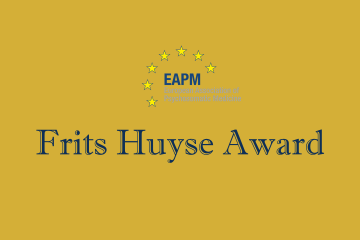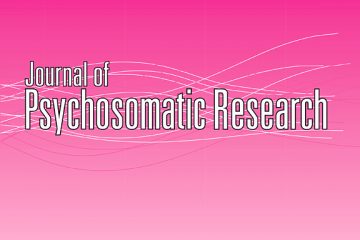written by Dr Jim Bolton – UK National EAPM Coordinator and Chair of the RCPsych Faculty of Liaison Psychiatry – May 2020
Short Country report: United Kingdom
COVID-19: Perspectives on the pandemic from UK liaison psychiatry
I have three perspectives on the COVID pandemic in the UK. Firstly, as the Chair of the Royal College of Psychiatrists’ (RCPsych) Faculty of Liaison Psychiatry I have been involved in the compilation of national guidance for mental health services. I have also had the opportunity to discuss colleagues’ experiences from liaison psychiatry services across the UK. Secondly, I am consultant with a liaison psychiatry service in a London hospital that has treated a large number of patients with COVID-19 infection. Finally, I have a personal perspective, informed by my own illness with coronavirus.
National perspective
As the UK was anticipating the pandemic, the Liaison Psychiatry Faculty Executive Committee held what will be its last face-to-face meeting for many months. We took the opportunity to compile guidance for liaison psychiatry services on how they could prepare. Key areas we highlighted included:
- Considering how a service should adapt, including which aspects of clinical care should be prioritised and how these could be delivered with fewer staff;
- Developing alternative assessment facilities for patients presenting to emergency departments with mental health problems;
- Supporting the mental wellbeing of hospital staff as well as members of the liaison psychiatry service.
Our early guidance has helped to shape extensive resources compiled by the RCPsych for the whole of the UK psychiatric profession, as well as patients and carers: https://www.rcpsych.ac.uk/about-us/responding-to-covid-19
In many areas of the UK, emergency services have been redesigned to minimise the use of emergency departments by patients presenting with primary mental health problems. New service models have included diverting cases to alternative areas of the hospital for assessment, as well as the provision of separate mental health emergency departments at other locations.
There is national interest in whether such services should be maintained following the pandemic. To inform this discussion, the Faculty is undertaking a survey of UK liaison psychiatrists to seek their feedback on these new services. There is an obvious benefit in minimising patients’ exposure to coronavirus. However, there is also concern that such services might lead to the erosion of the expertise of emergency department staff in the assessment and management of mental illness, and increase stigmatisation.
National liaison psychiatry webinars and online groups have been valuable in sharing experience and information, including the number and types of problems being managed by services. Most have experienced a reduction in emergency referrals. This is consistent with overall reductions in emergency department attendances and new referrals to community mental health services. However, as the number of coronavirus cases has subsided, emergency referrals to liaison psychiatry are increasing. There is concern that the peak of new infections may be followed by one of mental illness. Potential contributory factors include the extended period of lockdown and social isolation. These are already thought to have had a detrimental effect on the mental health of the population, particularly those with pre-existing mental illness.
A specific area of concern is a potential increase in rates of self-harm and suicide in the aftermath of the pandemic, especially if there is a period of economic hardship. To help with the early identification of a potential public health problem, several liaison psychiatry services will be participating in a national self-harm surveillance study, coordinated by the University of Manchester.
Although liaison psychiatry services may have been seeing fewer patients in emergency departments, they have remained busy on the general hospital wards. One observation has been the high rate of delirium in COVID infection, often in young patients and with prominent psychotic symptoms. Does this simply reflect the severity of illness, or is there a COVID-specific delirium?
To help address this, and also questions about the rates of neurological and psychiatric symptoms in COVID-19 infection, the national CoroNerve surveillance study has been established by the University of Liverpool. The RCPsych is one of a number of collaborating organisations and all clinicians have been invited to report cases on-line.
Local perspective
In my role as a liaison psychiatrist I have reflected on some positive aspects to the pandemic. In particular, colleagues in all professional groups worked together to rapidly and successfully prepare the hospital for an influx of severely ill patients.
Joint working has also been of value in providing psychological and emotional support for hospital staff and patients. My own service, clinical and health psychologists based in individual hospital departments, the staff counsellors and hospital chaplains have organised a multidisciplinary support network. I hope that we can continue to work more closely together as the pandemic subsides.
Hospital colleagues have often reported that they have no time to consider the impact of their work on their own wellbeing. However the need for staff support may increase as work pressures decrease and they have time to contemplate what they have been through. But we should be mindful of not only the potential negative psychological consequences of this traumatic time, but also the opportunity for ‘post-traumatic growth’ and helping colleagues to recognise how they successfully learned from and adapted to the demands.
A consequence of the dramatic reorganisation of hospitals departments and working patterns has sometimes been a reduction in the cohesion of clinical teams and the continuity of patient care. In my service we have found that we have often had a role in ensuring that some of the basic aspects of psychosocial care are maintained. For example, we have had to remind staff under pressure how best to recognise and manage delirium in their patients. More than ever, liaison psychiatry has been the “glue” that has helped to ensure consistent and holistic patient care for those with mental and physical co-morbidities.
Personal perspective
Since my return to work, I hope that my first-hand experience of COVID-19 has helped me better understand and support the patients I meet, many of whom are anxious, frightened and despairing. In the UK, the pandemic has brought widespread recognition that COVID-19 has had not only physical consequences, but psychological and social repercussions for individual patients and society as a whole. This has helped to reinforce the essential role of liaison psychiatry services in providing comprehensive patient care.
Throughout this time I have been impressed by the resourcefulness, adaptability, perseverance and sheer hard work of colleagues in liaison psychiatry across the UK. I look forward to a time when we can meet in person and share our experiences and learning, both amongst ourselves, but also with colleagues from across Europe. If someone were to choose one group professionals who could cope with the unexpected, in an uncertain environment and with limited resources, then it would hard for them to do better than those working in liaison psychiatry and psychosomatic medicine.



0 Comments